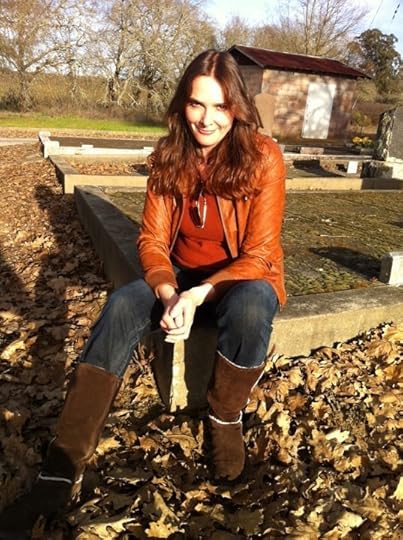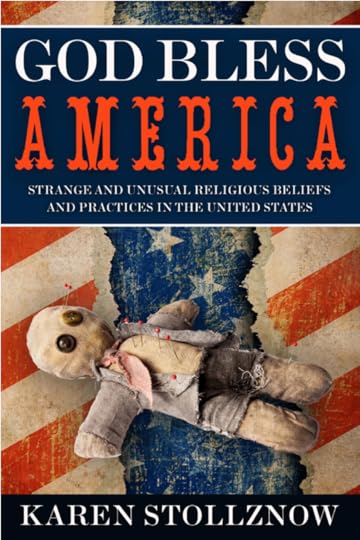Karen Stollznow interview, part two
 Today I published an interview with Dr. Karen Stollznow, author of
God Bless America
, at Religion News Service. Below is part two of our conversation.
Today I published an interview with Dr. Karen Stollznow, author of
God Bless America
, at Religion News Service. Below is part two of our conversation.
Chris Stedman: You talk about trying to write about the religious communities you profile in a “sensitive but factual” manner. How do you do that—especially when some of these groups are, as you write, “stigmatized, misunderstood, and mocked for being different”? And how does the way that these groups are often portrayed in the media factor into this?
Karen Stollznow: The best way to be sensitive to these religious communities is to get to know their members personally and to see them as people, not as stereotypes perpetuated in movies, books and online. For each religion profiled I had direct contact with members of these groups. It was also important for me to work with ex-members of these groups, to gain insight from those who are now outsiders, and have a unique perspective as former insiders. I wanted my accounts to be fair to these people but also factual—so I didn’t shy away from the more disturbing topics, such as animal sacrifice in Voodoo, and incest and rape in Fundamentalist Mormon communities.
CS: Where do you see religion in the U.S. heading, particularly considering the current large-scale exodus from traditional religion and the rise of “New Thought,” which you address in your book as being perhaps not-so-new?
KS: I think we’re seeing a slow secularization of the United States, but at the same time, a growing interest in New Age Spirituality. This is a religion-like belief system for those who don’t want to belong to organized religions, yet they still see themselves as “spiritual.” This label is used by many different people, from

‘God Bless America’ cover, courtesy Karen Stollznow.
those who are religious through to nontheists. Many of these people might otherwise identify as “atheist,” if it wasn’t for the negative perception that many Americans have towards atheism.
New Age Spirituality is a kind of do-it-yourself belief system for those who want to pick and choose their beliefs. It’s best exemplified by late “psychic medium” Sylvia Browne’s motto, “take what you like and leave the rest behind.” However, the “New Age” isn’t so new, but is an eclectic mix of religions and philosophies, including Buddhism, Christianity, and more modern theories of psychology, self-help, paranormal beliefs, and alternative medicine.
CS: In the final chapter of your book, you talk about Quakers who continue to participate in Quaker communities while also maintaining a naturalistic worldview. This phenomenon occurs in other communities as well, such as the American Jewish community, where a significant majority see no conflict between being a nontheist and being Jewish. Do you think that nontheists will become more accepted in other religious communities in the U.S.?
KS: There is a big difference between conservative Quakers and liberal Quakers. For this latter group, Quakerism is a charitable community as much as a religion—after all, it is also called the Religious Society of Friends. They believe that a person can have a direct experience with God, whatever “God” is to the individual.
For nontheistic Jews, I think identifying as Jewish is more about heritage, history and culture than religious belief. Voodoo adherents often see themselves as Catholic by religion and Voodoo by cultural identity. Nontheism is also compatible with Buddhism, where nontheists adopt the philosophical elements but not the religious ones. I’m one of those nontheists who enjoy the occasional Catholic mass for the pageantry and the wisdom of the more humanist aspects of the sermons.
As for other religious communities accepting nontheists, there are numerous possible outcomes. Conservative religious communities are more inflexible and will be less likely to welcome nontheists, unless they’re willing to convert. More progressive religious communities might become more accepting of nontheists, although nontheists will only be attracted to religious communities that allow more metaphorical interpretations of religious views, and offer useful philosophies and opportunities for creating positive social change. Ultimately, nontheists won’t want to become involved with most religious communities because of their focus on spiritual rather than secular matters.



